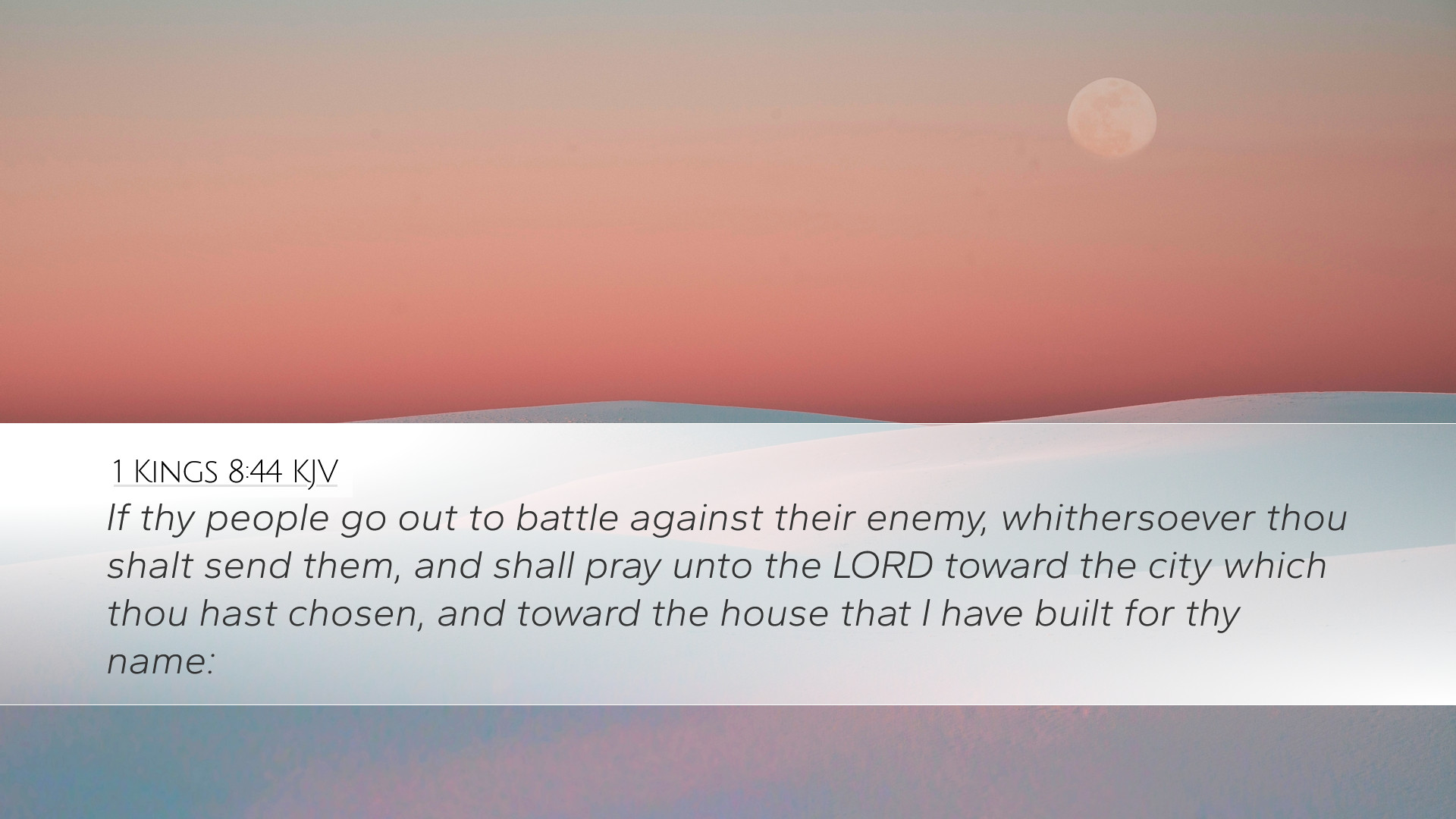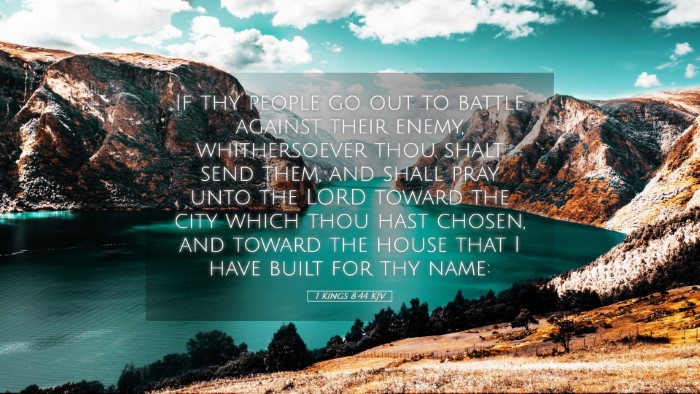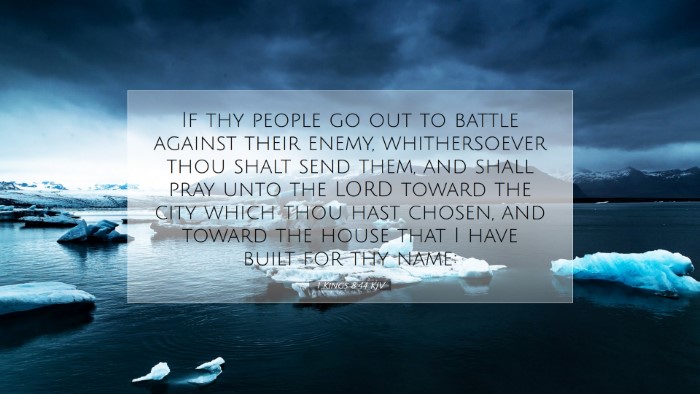Commentary on 1 Kings 8:44
1 Kings 8:44 states: "If your people go out to battle against their enemy, wherever you send them, and when they pray to the Lord toward the city which You have chosen and the temple which I have built for Your name,"
Introduction
This verse is part of King Solomon's prayer of dedication for the Temple, a momentous occasion and a pivotal event in the history of Israel. Here, Solomon anticipates the challenges Israel would face in battles and the significance of prayer as a means of divine assistance. This commentary integrates insights from Matthew Henry, Albert Barnes, and Adam Clarke to explore the theological and practical implications of this verse.
The Context of the Verse
1 Kings 8:44 is situated within a broader narrative where Solomon completes the construction of the Temple, symbolizing the presence of God among His people. This verse specifically addresses the situation in which the Israelites might find themselves on the battlefield and their need for divine help.
Henry emphasizes that the prayer indicates a recognition of God's sovereignty even in the midst of conflict. It underscores an essential truth: that whether in victory or defeat, the Israelites must look toward God and His designated worship place for guidance and support.
Insights from Matthew Henry
-
The Role of Prayer:
Henry notes that prayer is a fundamental aspect of the Israelite relationship with God, especially when facing adversity. He stresses the importance of turning to God in desperation, highlighting that in dire situations, prayer directed toward God’s chosen dwelling becomes vital.
-
The Direction of Prayer:
The act of praying towards the Temple, as Henry elaborates, illustrates the significance of focusing one's thoughts and intentions on God’s presence. The Temple represented not only God’s dwelling but also the central point of worship and community identity for the Israelites.
Insights from Albert Barnes
-
Understanding 'Your People':
Barnes points out that the phrase “Your people” indicates a deep connection between God and Israel. This reflects covenantal relationships that necessitate accountability, reverence, and reliance on God in all aspects, especially during perilous times.
-
Prophetic Anticipation:
Barnes suggests that this verse not only serves as a current plea for support but also prophetically anticipates future conflicts faced by Israel. Through prayer, the people are reminded of their identity as God’s chosen and their dependency on His guidance in all circumstances.
Insights from Adam Clarke
-
Context of Battle:
Clarke draws attention to the mention of battle, proposing that it reflects both physical and spiritual struggles that God’s people endure. He suggests that the depiction of battle is multi-layered, encompassing both the literal sense of warfare and the metaphorical battles within the believer’s life.
-
Theological Implications:
Clarke emphasizes that this prayer reflects a profound understanding of God's omnipresence and omnipotence. Wherever the Israelites may be, they are called to pray, indicating that divine help is accessible regardless of location, provided the heart is earnest in seeking God.
Theological Themes
-
Divine Assistance:
One of the primary themes of this verse is the assurance of divine assistance in times of trouble. The narrative assures believers that God sees their struggles and invites them to call upon Him for help.
-
Worship and Supplication:
Another theme is the connection between worship and supplication. Prayer is a form of worship—it acknowledges God's sovereignty and seeks His favor and guidance, especially when human efforts alone are not enough.
-
Communal Identity:
This verse reflects the community identity of Israel. The reliance on prayer and the Temple signifies a unity among the people as they confront challenges together while remaining anchored in their faith.
Application for Today
For modern-day pastors, students, and theologians, 1 Kings 8:44 serves as a powerful reminder of the necessity of prayer in all aspects of life, especially in trials. It calls believers to look to God as the ultimate source of strength and guidance as they navigate their own battles.
This verse also challenges the Church to maintain a collective identity rooted in worship and prayer. Just as Israel turned toward the Temple, the Church is encouraged to cultivate spaces of prayer and worship that foster communion with God, allowing Him to direct their paths in all circumstances.
Conclusion
In summary, 1 Kings 8:44 encapsulates core themes of dependence on God through prayer, the significance of worship in community identity, and the assurance of divine assistance. By engaging with this text, one gains insight into the biblical understanding of prayer's role in the life of believers, which resonates profoundly, conveying timeless truths that continue to guide and inspire faith today.


